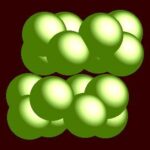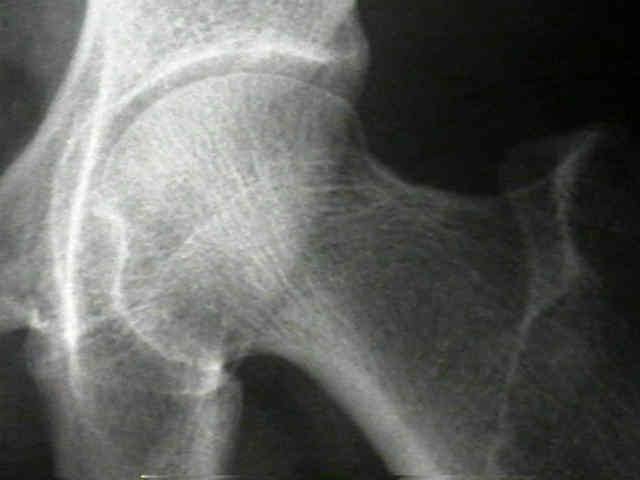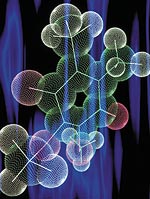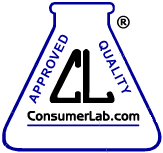 Acute coronary syndrome refers to any condition brought on by sudden, reduced blood flow to the heart causing chest pain during a heart attack or chest pain at rest or doing light physical activity (unstable angina).
Acute coronary syndrome refers to any condition brought on by sudden, reduced blood flow to the heart causing chest pain during a heart attack or chest pain at rest or doing light physical activity (unstable angina).
Researchers at Shanghai Jiaotong University, School of Medicine, in China, tested berberine’s effects on ACS patients following percutaneous coronary intervention (PCI) (aka angioplasty or stent placement). Continue reading Berberine to treat acute coronary syndrome →
 Dr. Gayle Nicholas Scott at Eastern Virginia Medical School, Norfolk, Virginia, reviewed the evidence on Medscape . Continue reading Should L-carnitine be taken to treat angina pectoris? →
Dr. Gayle Nicholas Scott at Eastern Virginia Medical School, Norfolk, Virginia, reviewed the evidence on Medscape . Continue reading Should L-carnitine be taken to treat angina pectoris? →
 Here’s a summary of a Cochrane review of herbals to treat stable angina — aka chronic angina.
Here’s a summary of a Cochrane review of herbals to treat stable angina — aka chronic angina.
In stable angina, chest pain occurs with activity or stress. The pain begins slowly and gets worse over several minutes before going away. Continue reading Traditional Chinese herbals to treat stable angina →
 Researchers at the University of Warwick Medical School, in Coventry, UK examined the association. Continue reading The effect of selenium on cholesterol levels →
Researchers at the University of Warwick Medical School, in Coventry, UK examined the association. Continue reading The effect of selenium on cholesterol levels →
 Dr. James Levine from the Mayo Clinic in Rochester, Minnesota has reviewed the evidence. Here are the benefits. Continue reading Let’s chronicle the health benefits of walking →
Dr. James Levine from the Mayo Clinic in Rochester, Minnesota has reviewed the evidence. Here are the benefits. Continue reading Let’s chronicle the health benefits of walking →
 Â Researchers from Peking University People’s Hospital in Beijing reviewed studies concerning the effects of omega-3 fatty acids on the risk of dying in patients with coronary heart disease. Continue reading Omega-3 in patients with coronary heart disease →
 Researchers from Peking University People’s Hospital in Beijing reviewed studies concerning the effects of omega-3 fatty acids on the risk of dying in patients with coronary heart disease. Continue reading Omega-3 in patients with coronary heart disease →
  Researchers from the University of Auckland in New Zealand tell us, “There is no consistent evidence… that calcium supplementation affects bone mineral density (BMD) in men, despite male osteoporosis being a common clinical problem.
 Researchers from the University of Auckland in New Zealand tell us, “There is no consistent evidence… that calcium supplementation affects bone mineral density (BMD) in men, despite male osteoporosis being a common clinical problem.
Their study looks at the effect of 2 dosing regimens of calcium on BMD. Continue reading Should men take calcium supplements? →
 Suxiao jiuxin wan is a mixture of herbs that is used in China along with western medicine to treat angina.
Suxiao jiuxin wan is a mixture of herbs that is used in China along with western medicine to treat angina.
This Cochrane review concluded that the evidence does not support its use. Continue reading A review of suxiao jiuxin wan as treatment for angina pectoris →
 Eicosapentaenoic acid (EPA) from fish oil lowers triglyceride levels.
Eicosapentaenoic acid (EPA) from fish oil lowers triglyceride levels.
Now, a study in Japan reports that adding EPA to low-dose statin therapy lowers the risk for certain major coronary events, including nonfatal heart attacks, unstable angina and the need for revascularization procedures). Continue reading The JELIS study: Fish oil, statins, and heart disease →
 Yohimbine (sold by the names Yocon, Yohimar, and others) is used to treat impotence (aka erectile dysfunction).
Yohimbine (sold by the names Yocon, Yohimar, and others) is used to treat impotence (aka erectile dysfunction).
This study suggests yohimbine’s ability to change baroreflex control of the heart might yield additional benefits in certain circumstances. Continue reading Might yohimbine reduce the risk of heart disease? →
 Isoflavones are one of the phytoestrogens found mainly in soybeans. Here’s a somewhat technical study from researchers at the Queen Mary Hospital in Hong Kong where isoflavones had beneficial effects on blood flow in people at risk for cardiovascular complications. Continue reading Probing the value of isoflavones in patients at risk for cardiovascular complications →
Isoflavones are one of the phytoestrogens found mainly in soybeans. Here’s a somewhat technical study from researchers at the Queen Mary Hospital in Hong Kong where isoflavones had beneficial effects on blood flow in people at risk for cardiovascular complications. Continue reading Probing the value of isoflavones in patients at risk for cardiovascular complications →
 The Women’s Health Initiative Observational Study reports “Panic attacks are relatively common among postmenopausal women and appear to be an independent risk factor for cardiovascular morbidity and mortality in older women.”
The Women’s Health Initiative Observational Study reports “Panic attacks are relatively common among postmenopausal women and appear to be an independent risk factor for cardiovascular morbidity and mortality in older women.”
Let’s review the study and then the CAM connection. Continue reading The health risks of panic attacks in postmenopausal women and CAM options →
 About 23% or 62 million Americans have some form of cardiovascular disease (CVD; eg, heart disease, stroke, atherosclerosis, coronary heart disease, angina, coronary artery disease, high blood pressure, or heart failure).
About 23% or 62 million Americans have some form of cardiovascular disease (CVD; eg, heart disease, stroke, atherosclerosis, coronary heart disease, angina, coronary artery disease, high blood pressure, or heart failure).
The Women’s Antioxidant Cardiovascular Study concluded, “There were no overall effects of ascorbic acid [vitamin C], vitamin E, or beta carotene on cardiovascular events among women at high risk for CVD.”
But read on to see those who did benefit. Continue reading Some benefit from antioxidant vitamins on the risk of cardiovascular disease →
 The standard of care for unstable angina (the intermediate state between stable angina and having a heart attack) starts with prompt treatment using aspirin, beta-blockers, and statins.
The standard of care for unstable angina (the intermediate state between stable angina and having a heart attack) starts with prompt treatment using aspirin, beta-blockers, and statins.
Here’s what happened when Quyu Xiaoban (QYXB) was given with the aspirin. Continue reading Quyu Xiaoban in patients with unstable angina pectoris →
 It’s is the third time this year the FDA has identified a “natural” product sold via the Internet for the treatment of impotence (erectile dysfunction) that was adulterated with the prescription drug tadalafil (Cialis). Continue reading Consumer alert: FDA recalls Long Weekend →
It’s is the third time this year the FDA has identified a “natural” product sold via the Internet for the treatment of impotence (erectile dysfunction) that was adulterated with the prescription drug tadalafil (Cialis). Continue reading Consumer alert: FDA recalls Long Weekend →
 Researchers from the Medical University of Vienna reviewed and reanalyzed the results from 25 studies of the treatment of the climacteric syndrome (menopause).
Researchers from the Medical University of Vienna reviewed and reanalyzed the results from 25 studies of the treatment of the climacteric syndrome (menopause).
Their findings are not always clear-cut. Continue reading The value of phytoestrogens during menopause →
 It’s always a good idea to get a second opinion when it comes to your healthcare. Coenzyme Q10 (CoQ10) has been used, recommended, or studied for many conditions, but its use is controversial. Here are two websites that reviewed the literature and are ready to advise on the status of CoQ10 — MotherNature.com (MN) and MayoClinic.com (MC).
It’s always a good idea to get a second opinion when it comes to your healthcare. Coenzyme Q10 (CoQ10) has been used, recommended, or studied for many conditions, but its use is controversial. Here are two websites that reviewed the literature and are ready to advise on the status of CoQ10 — MotherNature.com (MN) and MayoClinic.com (MC).
Here are comparative evaluations and ratings for three sample diseases.
Continue reading Coenzyme Q10: Two points of view →
 The good news is that all 36 products tested had the claimed ingredients. But the doses varied from 15 mg to 400 mg!
The good news is that all 36 products tested had the claimed ingredients. But the doses varied from 15 mg to 400 mg!
This isn’t surprising and has been discussed here before. Perspective on the value of CoQ10 to treat high blood pressure, angina, and Alzheimer’s disease is provided in this earlier post.
10/16/06 22:35 JR
Complementary and Alternative Medicine: Fair, Balanced, and to the Point
 Acute coronary syndrome refers to any condition brought on by sudden, reduced blood flow to the heart causing chest pain during a heart attack or chest pain at rest or doing light physical activity (unstable angina).
Acute coronary syndrome refers to any condition brought on by sudden, reduced blood flow to the heart causing chest pain during a heart attack or chest pain at rest or doing light physical activity (unstable angina).
 Researchers at the University of Warwick Medical School, in Coventry, UK
Researchers at the University of Warwick Medical School, in Coventry, UK  Dr. James Levine from the Mayo Clinic in Rochester, Minnesota has reviewed the
Dr. James Levine from the Mayo Clinic in Rochester, Minnesota has reviewed the  Â Researchers from Peking University People’s Hospital in Beijing
 Researchers from Peking University People’s Hospital in Beijing  Here’s a
Here’s a  Isoflavones are one of the phytoestrogens found mainly in soybeans. Here’s a somewhat technical
Isoflavones are one of the phytoestrogens found mainly in soybeans. Here’s a somewhat technical  The Women’s Health Initiative Observational Study
The Women’s Health Initiative Observational Study  It’s is the third time this year the FDA has identified a “natural”
It’s is the third time this year the FDA has identified a “natural”  It’s always a good idea to get a second opinion when it comes to your healthcare. Coenzyme Q10 (CoQ10) has been used, recommended, or studied for many conditions, but its use is controversial. Here are two websites that reviewed the literature and are ready to advise on the status of CoQ10 —
It’s always a good idea to get a second opinion when it comes to your healthcare. Coenzyme Q10 (CoQ10) has been used, recommended, or studied for many conditions, but its use is controversial. Here are two websites that reviewed the literature and are ready to advise on the status of CoQ10 —  The good news is that all 36 products
The good news is that all 36 products